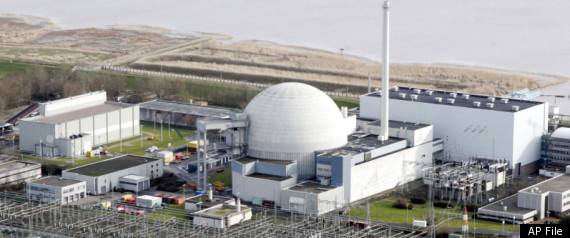
Environmental advocacy organizations and major electric utilities don't always see eye to eye on government standards. But the Environmental Law & Policy Center and Exelon Corp. agree that the Environmental Protection Agency's action to protect public health and clean up our nation's oldest and dirtiest power plants is not only essential to safeguard the health of thousands of Illinois residents — it will also be good for creating jobs and boosting the state's economy.
We believe that efforts by some in Congress to derail this action should be vigorously resisted.
The intense national debate over proposed new federal standards to reduce hazardous air pollutants from power plants comes to Chicago on May 24. The EPA will hold a public hearing here on its proposed standards setting federal limits — for the first time — on mercury, arsenic, lead, hydrochloric acid and other hazardous air pollutants.
The "toxics rule" is one of two key safeguards the EPA has proposed under the Clean Air Act to protect public health and the environment. The other is the Clean Air Transport Rule, which will reduce the downwind transfer of sulfur dioxide and nitrogen oxide emissions. Both standards are expected to be finalized this year.
These new standards will achieve cleaner air and safeguard public health. They target for cleanup life-threatening air pollutants that have been linked to cancer, heart disease, neurological damage, birth defects, asthma attacks and even premature death, and especially affect children and the elderly.
For example, mercury is a neurotoxin that causes fetal brain damage. State public health officials have issued "advisories" on every river, lake and stream in the Great Lakes states, warning people — especially pregnant women — to severely limit their consumption of fish. Sad isn't it, that it's not safe for people to eat the fish that they catch here?
Old, inefficient coal-fired power plants in the Midwest are the largest source of these air pollutants. In fact, two coal plants in Chicago are among the oldest operating in the nation. The Clean Air Task Force recently reported that coal plant pollution causes more than 1,000 heart attacks and 450 hospital admissions every year in Illinois.
The proposed new EPA clean-air standards will help prevent these unnecessary illnesses and also protect our environment. They will drive power plant owners to decide whether to clean up or retire their oldest, highest-polluting plants. Taking the dirtiest plants off the grid will enable newer, more efficient power plants to be built, resulting in more jobs, cleaner air and lower health costs. Exelon and other utilities have already taken steps to install pollution controls and transition to cleaner resources. For example, Exelon in 2009 announced plans to retire several units at two older coal plants. Plus, there are many proven pollution-control technologies available, some of which take only 18 months to install. In fact, well over half of the nation's power plants have already installed pollution controls.
The University of Massachusetts at Amherst estimated earlier this year that compliance with new clean air standards will create more than 122,000 capital investment jobs in Illinois over the next five years, and nearly 1,500 permanent jobs operating and maintaining the new equipment here. Accordingly, Illinois will be one of the states poised to benefit most from the EPA's new standards. (These are skilled, high-paying jobs that the state badly needs.) And it's not just jobs. Another new report titled "Expensive Neighbors: The Hidden Cost of Harmful Pollution to Downwind Employers and Businesses" found that the longer the EPA's transport rule is not implemented, the longer Illinois will suffer from about $450 million in lost income and tax revenue each year. These losses result from reduced productivity from air pollution that wafts into Illinois from other states.
Those who oppose EPA's clean air standards point to likely power plant retirements. In true Chicken Little form, they warn there won't be enough electricity left to supply our needs. But the electric power industry is well-prepared for the changes and can maintain system reliability — a fact that several recent reports have corroborated. M.J. Bradley & Associates notes that the United States already has a strong foundation of more than 100 gigawatts of excess power plant capacity, double the amount of capacity that can be expected to retire under the new EPA standards.
The EPA's common-sense health protections are required by the Clean Air Act and long overdue. They will dramatically improve public health, create much-needed jobs, and transition us to a cleaner energy future. This is an important case where Exelon and the Environmental Law & Policy Center stand together — as we all should — to protect public health, our environment and the Illinois economy.
John W. Rowe is chairman and CEO of the Chicago-based Exelon Corp. Howard A. Learner is president of the Environmental Law & Policy Center, a Midwest public interest advocacy organization.
Copyright © 2011, Chicago Tribune
Article Courtesy of: http://www.chicagotribune.com
Image Courtesy of: Sura Nualpradid

